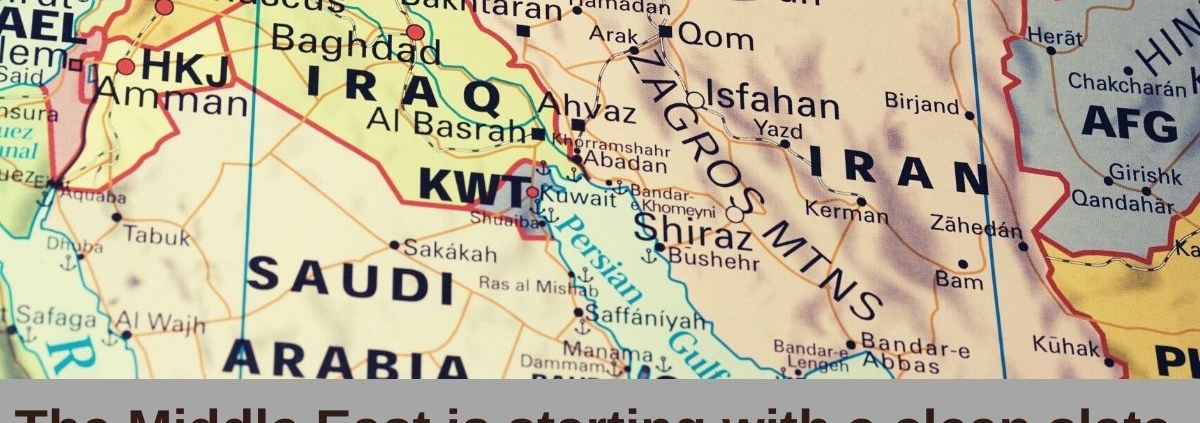In a region that has, for the most part, been subject to geopolitical shifts and socio-economic challenges, the situation has now taken a turn for the better, with stability, growth, and progressive politics finding emphasis. By facilitating regional dialogue and coordination, the Middle East is working towards creating a more sustainable and inclusive future for all members. For someone like me, who has come to call this home, these are developments to take immense pride in.
Blowing away the cobwebs of regional rivalries
Ten years after Syria had been banned from the Arab League, President Bashar Al-Assad met UAE Foreign Minister Sheikh Abdullah bin Zayed Al Nahyan in Syria. Such a historic meeting in November 2021 was, I presume, a sign of the possibility that Syria’s regional ties in the Middle East could normalise. That same month, Sheikh Mohammed bin Zayed Al Nahyan, the UAE’s de facto ruler, visited Turkey to launch a $10 billion investment(1) in the country. This move ended a decade of political tensions between the two nations.
In addition, following Iran’s talks with Saudi Arabia in Iraq, UAE National Security Advisor Sheikh Tahnoun bin Zayed Al Nahyan invited Iranian President Ibrahim Raisi to the UAE, during his visit to Iran. Recently, Syria’s President Assad also paid the first visit to the UAE since the Syrian civil war(2). These, and more instances of fence-mending among regional rivals in the Middle East, have led me to believe that the countries are gradually, and finally, trying to bury old hatchets and build new bridges. How did this transpire?
The big picture
I feel there are two primary factors that have contributed to the rapprochement of bilateral relations between nations. The first is the West’s gradual departure from Middle Eastern affairs. This has left a vacuum that the regional leaders are seeking to fill between themselves. The way I see it, the reduced intervention from the West also enabled regional economies to lose their inhibitions and fuel their own aspirations. Some, including the UAE, have gone as far as normalizing relations with Israel, the nation which is at odds with the majority of the Middle East.
The second factor is the fewer incidence of disobedience movements and civil wars, like the Arab Spring era(3), which previously hampered regional nations’ growth. Today, when leading economies in the East and the West are witnessing domestic strife, border skirmishes, and all-out kinetic wars, leaders in the Middle East have seized the opportunity to restore cordial relations with their neighbours, based on cultural kinship. We wake up to the news of new bilateral deals on a daily basis. But, besides putting old grievances to bed, Middle Eastern nations must also plan for a future that is aligned with their shared goals. Two of the foremost priorities are as follows.
A greener, more sustainable future
From recurrent floods to stubborn droughts, the region has begun to experience the impact of climate change. But, despite long-standing geographical and climatic deterrents, the regional economies are coming together for sustainability, renewable, and green energy initiatives. The UAE and the KSA, for example, have pledged net-zero emissions by 2050 and 2060, respectively. It’s a bold move for OPEC nations if you ask me, but commendable nonetheless.
What’s even more encouraging is that, in 2023, the UAE is geared up to host the 28th Conference of Parties (COP28), an international climate summit, in Dubai, after Egypt hosts the COP27 this year. In my opinion, these milestones can help strengthen the Middle East’s resolve to address climate change, by enabling region-level multi-stakeholder engagement.
Post-pandemic recovery
The region was beset with high unemployment rates(4), lack of quality jobs, low annual economic growth, and geopolitical conflicts. Following the pandemic, however, some of these challenges have abated while new ones have cropped up. The pandemic and its knock-on impact have widened socio-economic challenges, including a rise in poverty levels and income inequalities. I believe the private sector has to play a pivotal role in helping governments expedite economic recovery efforts.
Fortunately, with nations increasingly seeing eye to eye, there hasn’t been a better time to initiate region-wide economic cooperation. With effective knowledge flows, exchange of innovations and ideas, and multi-lateral trade, the region can not only achieve growth across multiple socioeconomic metrics but also attain a leading position in the changing global order. This is an opportunity to start with a clean slate and re-write our stories from scratch.
- https://www.arabnews.com/node/1974661/business-economy
- https://www.aljazeera.com/news/2022/3/18/syrias-assad-visits-uae-in-first-trip-to-arab-state-since-2011
- https://www.britannica.com/event/Arab-Spring
- https://openknowledge.worldbank.org/bitstream/handle/10986/36618/9781464817762.pdf



